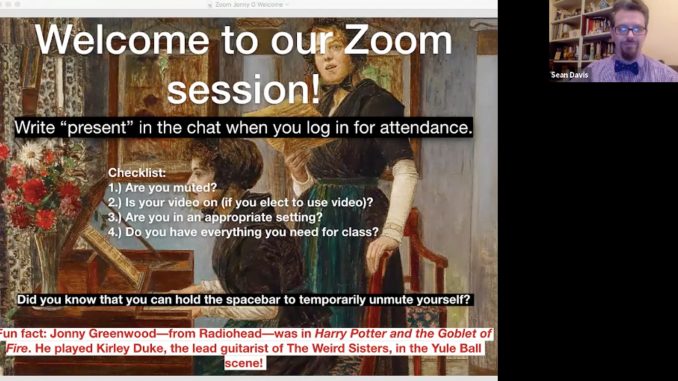
While at home during the COVID-19 pandemic with her 4-year-old son, a husband who’s working for Temple University Hospital Nurses Association, and taking classes for her master’s in counseling psychology, Anna Peak is continuing to teach four undergraduate courses — but under new course expectations and requirements.
She’s gotten rid of all penalties for turning in assignments late, given her students all extra participation points, and changed her course finals to have three project options instead of just one.
“It was really important to me to add these options now, because I feel like that’s something else that students need is a little bit of freedom to do what works best for them because they’re all in such different situations,” said Peak, an intellectual heritage professor.
Halfway through the Spring 2020 semester, Temple University transitioned its classes online due to the spread of COVID-19, had students leave on-campus housing and encouraged students living off campus to return home.
Due to these changes, professors and instructors have been challenged not only to move course material online, but also make it accessible and engaging for students who are now learning remotely from all types of home environments. Through extended assignments, individual phone calls and regular check-ins, some faculty are taking new measures to ease students’ workload and accommodate less-than-ideal educational scenarios during the pandemic.
CLASS MODIFICATIONS AND GRADING
When Laura Levitt’s classes transitioned online on March 15, she had just finished grading midterm exams. Because she didn’t have access to a scanner and wanted to help improve her students’ writing, she reviewed them with each student individually over the phone. Though it was exhausting, she thought it was helpful, she said.
“Sometimes students don’t realize, but their professors are really stressed out too,” said Levitt, a Jewish studies, liberal studies and religion professor. “So I think we need to all be kind to each other.”
Levitt kept her two classes synchronous during the transition, meaning she’s still meeting with her classes via Zoom conference calls three times a week. Still, she uploads lecture recordings to Canvas for students to watch if they miss the class session, and when a student does, she individually emails them to check in.
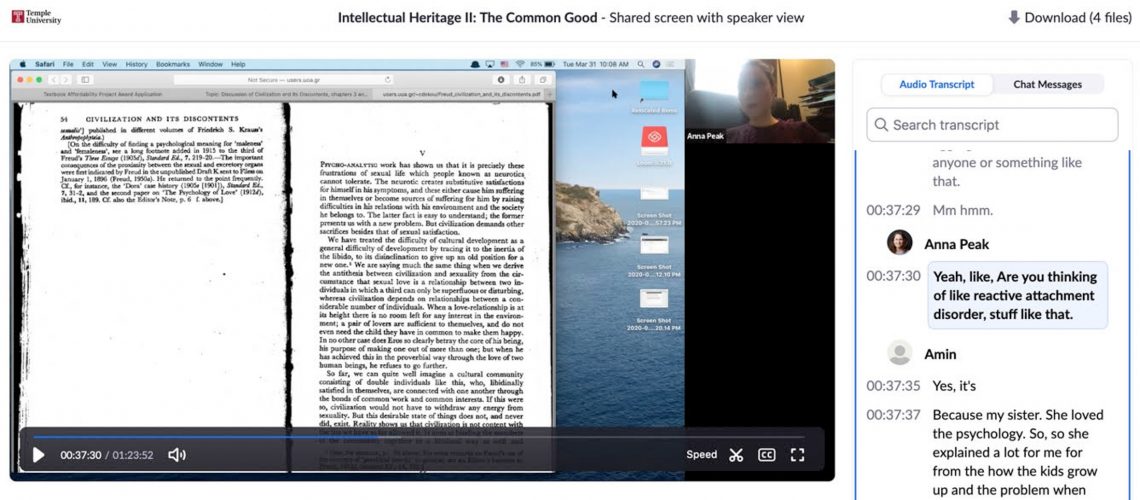
She modified and lessened the requirements for her courses’ final exams and made options available for reading assignments to be more accomodating, she said.
“If somebody needs more time with an assignment, this is not a time to be persnickety about such things,” Levitt said. “I think it’s really a time to be as kind and accommodating as possible, but also not to dumb things down.”
Geoffrey Baym, a media studies and production professor who also kept his classes synchronous, waived requirements for final exams and replaced them with an optional extra credit assignment, he said.
Baym’s never taught online classes before, and in navigating the “uncharted waters” of teaching and learning during the pandemic, he doesn’t expect perfection from students, but for them to do the best they can to get through it, he said.
“Now that we’re getting to the very back end of the semester, I feel like as a captain of a ship I’m trying to get my ship safely to shore,” Baym said.
MANAGING INDIVIDUAL CIRCUMSTANCES
The transition to online classes made Baym reflect on the pressures students are under and the differences in students’ challenges at home, he said. Students on campus can all use the same computer lab, but at home, the access doesn’t look the same.
“It’s pretty clear to me, you know, who’s going home to nice houses with strong internet connections and, you know, expensive laptops and who’s not,” he added.
And while Peak’s enabled late extensions for students who’ve returned home to China under a 14-day quarantine without guaranteed internet, other professors, like Marissa Cloutier, have cancelled finals and made missed work accommodations for her students, some of whom are nurses and emergency room nurse assistants fighting COVID-19.
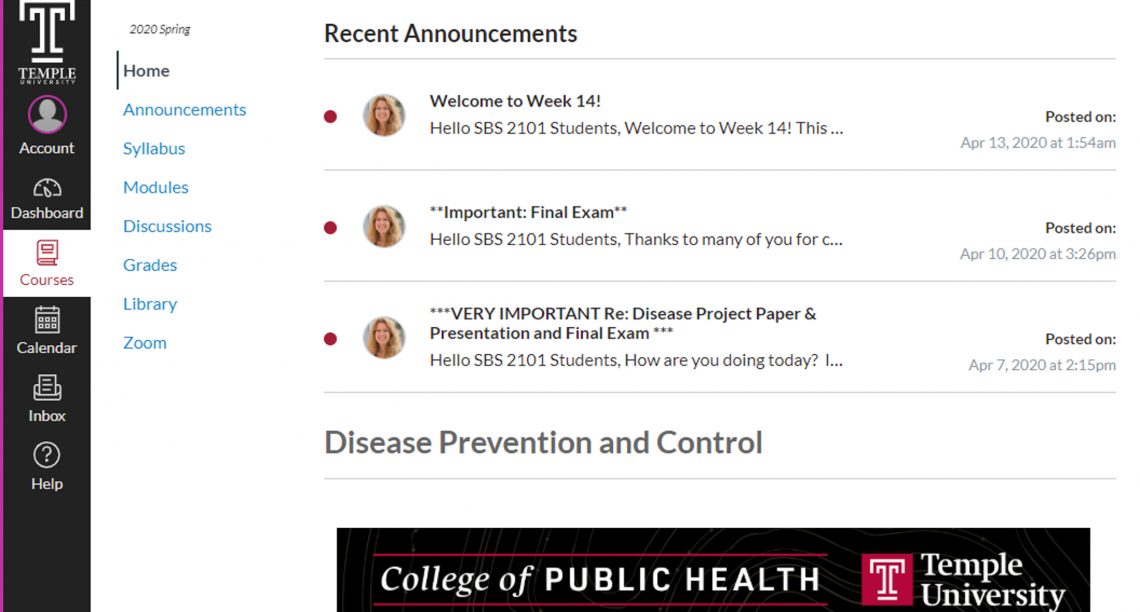
“They’re on the front lines, and for me to ask them to do X, Y and Z like in a typical semester, it’s just, no, it’s not gonna happen,” said Cloutier, a social and behavioral sciences professor.
Cloutier, who’s teaching four already-online public health courses — including a Disease Control and Prevention course — said instead, her main wish is that her students can eventually tie back the material they’ve learned to the pandemic.
“I essentially told students, you know, ‘You’re living my final exam,’” she added. “…For me to ask them to do anything else but just be in the moment and reflect on what’s going on right now, and you know, from what we’ve learned in the course, I think, ‘Is that counterproductive?’”
ENGAGING FROM AFAR
Yet, as professors and students have managed their own adjustments in home and work life during COVID-19, some program transitions have been more complex than others.
Matthew Miller, head of theater education, was the only faculty member in London with the Temple Theaters London program, a semester-long study abroad program in England, when he and the 17 students in the program found out they’d have to return home in March. He’s now transitioned from teaching them two in-person courses in London, to teaching them remotely online as they’ve returned home across the United States — from the East Coast to California to Alaska.
“This semester, it’s not about the grades,” Miller said. “Like, I don’t think anybody should be graded. I mean, everybody should get an A for all I care. I think that students are mature enough, and can soak in the material that they had before we all went online, and let’s do the best we can for however long the semester is. But I don’t think students should be held accountable for the situation that we’re in.”
He’s planning to host an in-person performance night in the fall for the program’s students to have closure for the semester projects they’re now asynchronously working on, but in the meantime, he’s organized them to have weekly Zoom check-in calls to stay in touch.
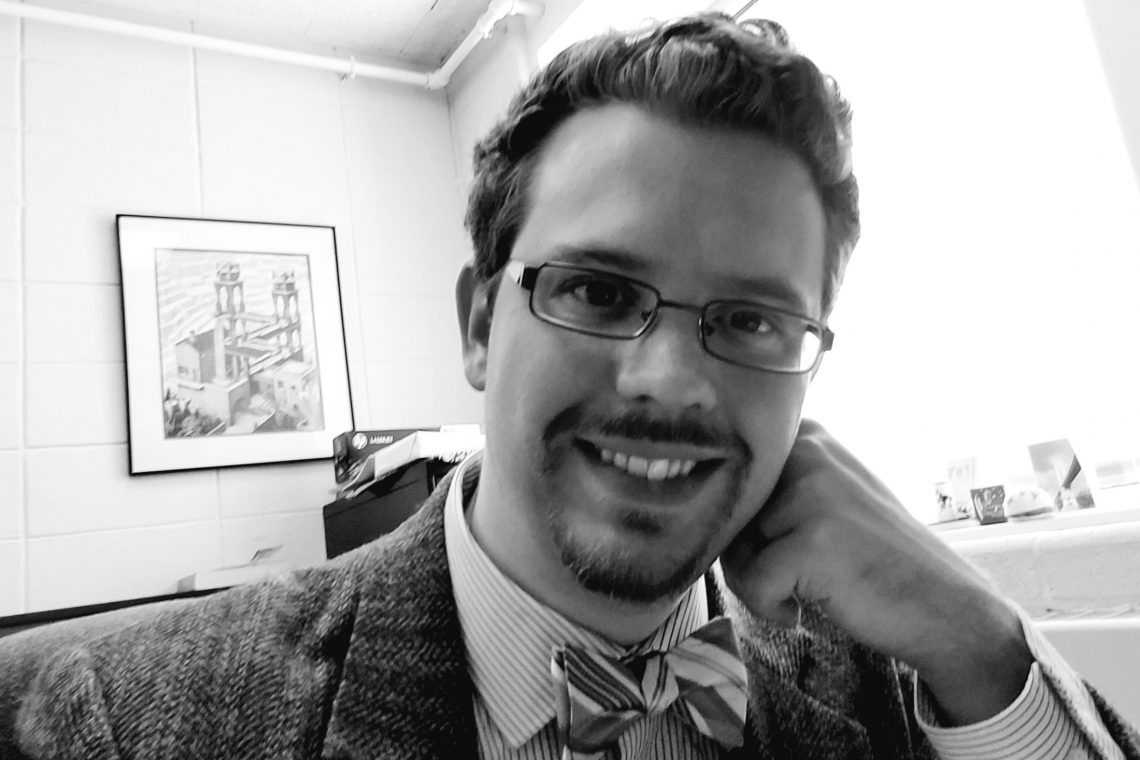
“There is some academics that happens in [the calls], but honestly mostly it’s just a chance to be a cohort and talk and laugh and say what’s going on in their lives, and it’s more of a mental check-in than an academic check-in,” Miller said.
Sean Davis, an adjunct music instructor, has implemented similar mental health check-ins after his two Temple and four West Chester University courses transitioned online.
“Some students are going home to situations that are less than ideal, and I don’t know who is being checked on, I don’t know who is having a rough time,” Davis said. “So I kind of felt as though, even if they’re not comfortable expressing it, which is very understandable, I think it helps just to hear somebody ask.”
TEACHING AFTER COVID-19
Even when in-person classes can resume, Davis said he plans to continue doing some type of check-in for students at the beginning of his classes, just to make sure they’re doing OK.
“Zoom and online teaching has shown a very bright light on this situation, it’s that we never really know what is going on inside of a student’s head or what’s happening in their personal lives,” Davis said. “And it’s not that we should, but there could be any number of circumstances that make it difficult for students to succeed.”
He also plans to put more notes about mental health and campus resources in his future syllabi, and use more of Canvas’ tools he’s used this semester in the future.
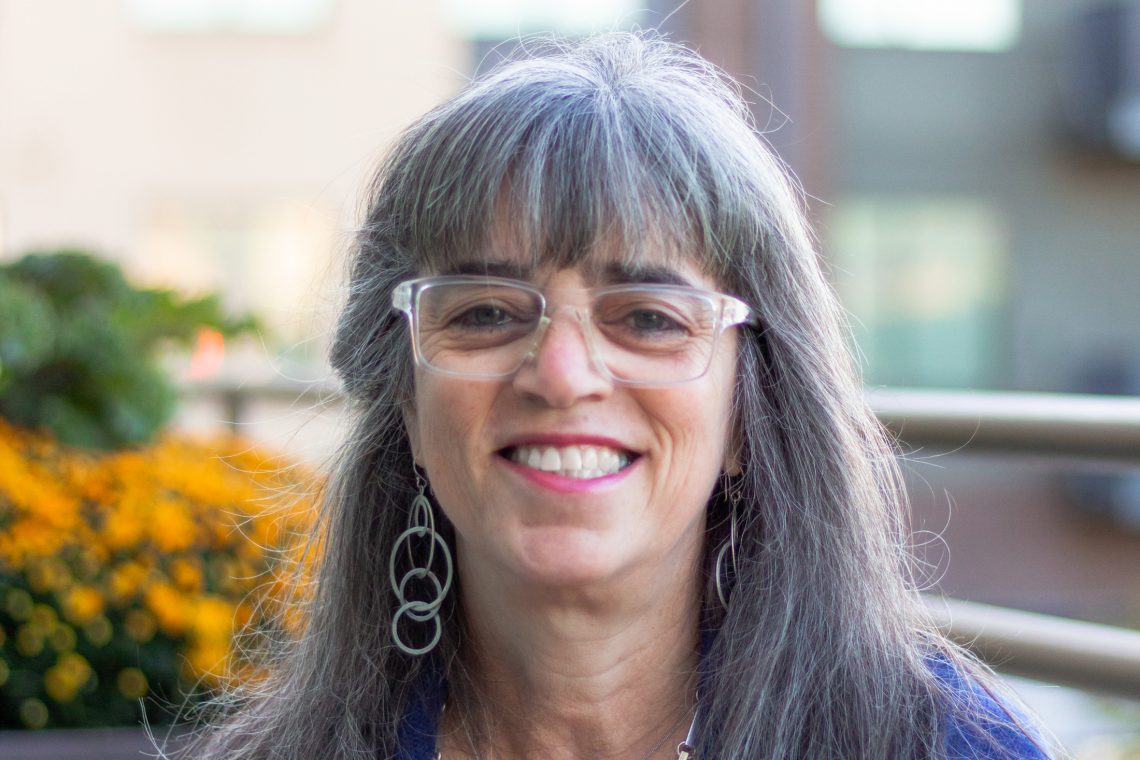
Levitt has made new connections and interpretations with some of her more familiar course material by teaching it during COVID-19, she said.
“I’ve learned a lot,” she said. “I think in these times, there are materials that I know very well, but I’ve read them really differently because of the situation in which we find ourselves, so it’s been kind of meaningful.”
For Peak, she plans to rethink her classes and course policies to increase the flexibility of assignments for the rest of her teaching career, starting with keeping her new no-late-penalty policy.
“At first, I thought you know that’s something I have to do like, at least for the short term, but then I realized that I had to do really from now on, I think in all the classes that I teach forever,” she added. “It’s really made me think about how to teach all my classes differently in the future.”


Be the first to comment